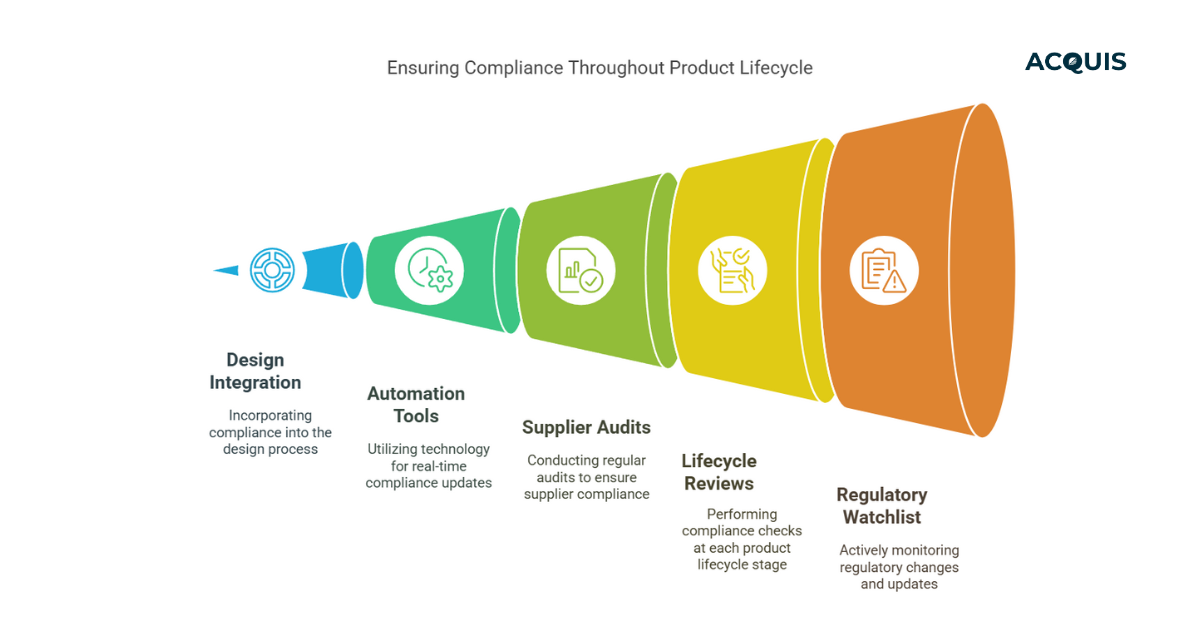The SCIP database is a vital part of the European Union’s (EU) strategy to manage hazardous substances throughout the lifecycle of products, particularly those that end up as waste. Established under the Waste Framework Directive (WFD) (2008/98/EC), the SCIP database is managed by the European Chemicals Agency (ECHA). It is designed to collect and store detailed information on Substances of Very High Concern (SVHCs) that are present in articles placed on the EU market.
What is Purpose and Goals of the SCIP Database
The SCIP database serves multiple critical functions aimed at protecting both human health and the environment:
-
Reducing Hazardous Waste: By encouraging the substitution of SVHCs with safer alternatives, the SCIP database helps decrease the number of hazardous substances entering the EU market, thereby reducing the generation of hazardous waste.
-
Enhancing Transparency: The database improves transparency regarding the chemical composition of products. This information is crucial for waste treatment operators, allowing them to process waste more safely and efficiently.
-
Lifecycle Monitoring: The SCIP database enables the monitoring of SVHCs throughout the entire lifecycle of an article—from production through to disposal. This comprehensive oversight allows for timely interventions, whether it’s during manufacturing, consumer use, or at the waste stage.
Information Required for SCIP Database Submissions
To comply with the SCIP directive, companies must submit detailed information about SVHCs present in their products. This information is crucial for ensuring that waste operators can safely manage and dispose of these products. The required data includes:
-
Article Identification: Clear and precise identification of each article is mandatory. This includes providing unique identifiers that make it easy to track and manage the article within the SCIP database.
-
SVHC Details: Companies must disclose the specific SVHCs present in each article. This includes the chemical name, CAS number, concentration range, and the location of these substances within the article.
-
Safe Use Instructions: Any relevant information that facilitates the safe use and disposal of the article must be included. This is particularly important for ensuring that hazardous substances are handled correctly during the waste stage.
Creating SCIP Dossiers Using the IUCLID Format
Since January 5, 2021, all manufacturers, importers, and distributors in the EU have been required to submit data to the SCIP database. The submissions must be made in the IUCLID (International Uniform Chemical Information Database) format, which is the standard for chemical data submissions to ECHA.
-
Data Compilation: Gather all relevant information on SVHCs, including their presence in complex objects or articles. Ensure that all data is accurate and up-to-date.
-
Dossier Preparation: Use IUCLID software to compile this data into a structured format that meets ECHA’s requirements. This includes organizing information hierarchically, especially for complex objects with multiple components containing SVHCs.
-
Submission Process: Once the dossier is complete, it is submitted to ECHA via the SCIP portal. Companies may also use system-to-system data transmission to streamline the submission process, ensuring that all required information is transmitted accurately and efficiently.
Who Needs to Submit Information to the SCIP Database?
Any company that places products containing SVHCs on the EU market is required to submit information to the SCIP database. This includes:
-
Manufacturers and Importers: Both entities are responsible for ensuring that all products containing SVHCs are reported to the SCIP database. This requirement applies regardless of whether the company is based inside or outside the EU.
-
Distributors: While retailers are not directly in scope, the distributors who supply them must ensure that SCIP submissions are made for all relevant products.
-
Voluntary Submissions: Although not required, companies outside the EU that do not place products on the market may choose to submit information voluntarily to support their EU-based partners or clients in meeting compliance requirements.
How Acquis Simplifies SCIP Database Submissions and Dossier Creation
Navigating the SCIP submission process can be complex, but Acquis Compliance offers tailored solutions to simplify this process, ensuring that your company meets all regulatory requirements efficiently and effectively.
Our services include:
-
Data Acquisition: We help you collect all necessary data from your supply chain, ensuring that your SCIP dossiers are complete and accurate.
-
Automated Dossier Preparation: Using our SaaS tools, We can prepare your SCIP dossiers in the IUCLID format, reducing the likelihood of errors and ensuring compliance with ECHA’s stringent requirements.
-
Regular Updates: As legislation evolves or as your product compositions change, Acquis ensures that your SCIP submissions are regularly updated to reflect the most current data.
-
Visual Dashboards: Our dashboards provide real-time insights into your compliance progress, helping you monitor and manage your SCIP obligations effectively.
-
Centralized Data Management: Acquis stores all your SCIP-related data in a secure, centralized database, making it easy to access, update, and report as needed.
-
Managing Compliance: Acquis supports you in fulfilling these obligations, coordinating with suppliers and stakeholders to ensure seamless compliance.
Conclusion
The SCIP database is a critical component of the EU’s strategy to manage hazardous substances, and compliance with its requirements is essential for any company placing products on the EU market. By partnering with Acquis Compliance, you can navigate the SCIP submission process with confidence, ensuring that your company meets all regulatory requirements while supporting broader environmental and sustainability goals.
For expert assistance with SCIP database submissions and to learn more about how Acquis can help streamline your compliance efforts, contact us today.
Speak to Our Compliance Experts
Share
ENVIRONMENTAL COMPLIANCE
- RoHS
- SCIP (WFD)
- REACH
- California Proposition 65
- Material Disclosure (FMD)
- PFAS
- TSCA PBT
- EU POPs
- EU MDR & IVDR
- ELV (GADSL)
- Others
- Extended Producer Responsibility (EPR)
INTEGRATION SUPPORT
WE ARE GLOBAL
USA
6705 Ridgedale CT, Glen Allen, VA 23059
+1.757.801.2760
info@aquiscompliance.com
India
#9/2, Hennur Bagalur Main Road, Bengaluru - 560077
+91 789 238 1827
info@aquiscompliance.com



